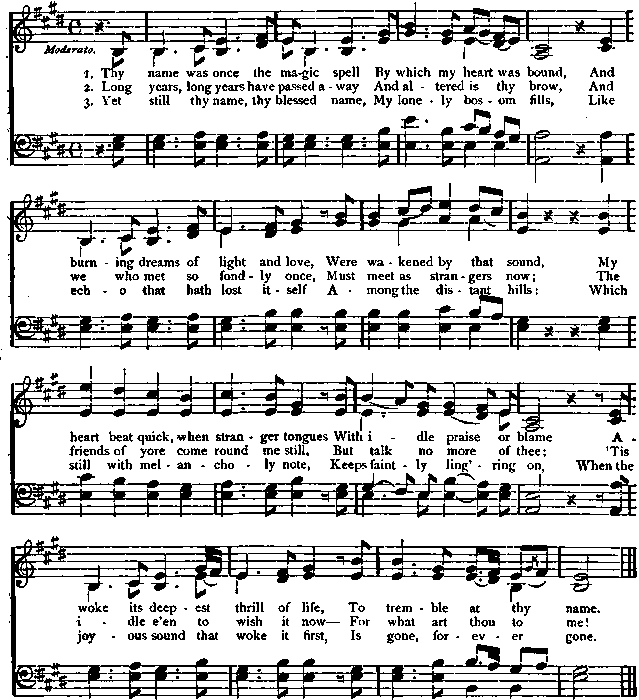Franklin Square Song Collection - online songbook
200 favorite songs and Hymns for Schools, Homes Lyrics & Sheet Music
| Share page | Visit Us On FB |
|
106 FRANKLIN-SQUARE SONG COLLECTION. |
||||
|
Love Songs.—This is one and a chief charm of Bums' love-songs, that they are certainly of all love-songs except those wild snatches left to us by her who flung herself from the Leucadian rock the most in earnest, the tenderest, the " most moving, delicate and full of life." Burns makes you feel the reality and the depth, the truth of his passion; it is not her eyelashes, or her nose, or her dimple, that are " winging the fervor of his love;" not even her soul; it is herself. This concentration and earnestness, this perfervor of |
our Scottish love poetry, seems to me to contrast curiously with the light, trifling philandering of the English ; indeed, as far as I remember, we have almost no love-songs in English of the same class as those of Burns. They are mostly of the genteel, or of the nautical (some of these capital), or of the comic school. Do you know, "Oh, wert thou in the cauld blast?" the most perfect, the finest love-song in our or in any language; the love being affectionate more than passionate, love in possession not in pursuit. The follow- |
|||
|
THY NAME WAS ONCE THE MAGIC SPELL. |
A. COWELL.
Caroline Norton. |
|||
|
|
||||
 |
||||
|
ing is Mr. Chambers' account of the origin of this song: Jessy Lewars had a call one morning from Burns. He offered, if she would play him any tune of which she was fond, and for which she desired new verses, that he would do his best to gratify her wish. She at once sat down at the piano, and played over "and over the air of an old song beginning with the words, " The robin cam' to the wren's nest." . . . Love never faileth; but whether there be prophecies, they shall |
fail; whether there be tongues, they shall cease; whether there be knowledge, it shall vanish away; but love is of God, and cannot fail.—Dr. John Brown. Home was always a mellow Saxon word; but it rings sweeter than ever now-a-days, thanks t» Payne's immortal song. When we are told that charitable men have erected an orphans' home, an outcasts' home, a sailors' home, etc., all this, indeed, wins the English ear and warms the English heart. |
|||